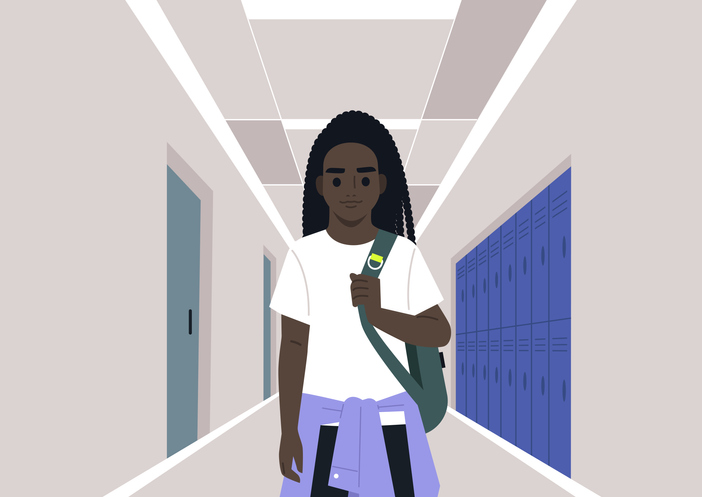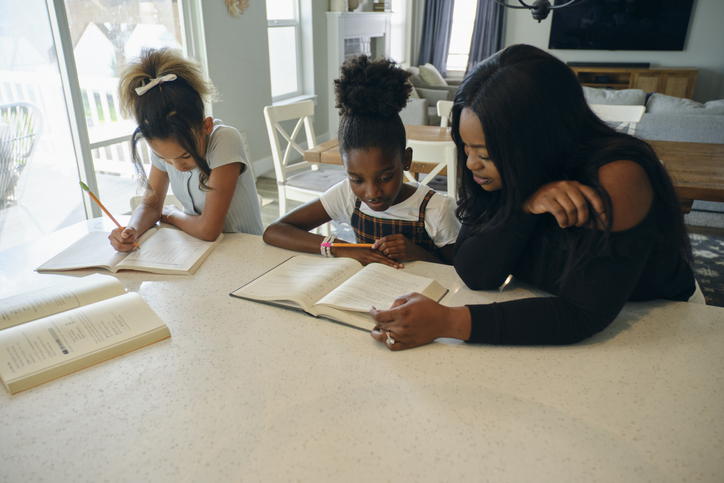International Day Of The Girl: How To Support Girls Across Globe
International Day Of The Girl Is A Reminder Of All The Critical Things We Must Do To Support Girls Globally

Source: nadia_bormotova / Getty
October 11 is International Day of the Girl, an opportunity to center the needs of girls across the globe. It is also a moment to assess whether we are doing all we can to ensure that girls everywhere receive a quality education. As a United Women in Faith Racial Justice fellow, I believe we have a long way to go to ensure educational justice for girls in the United States as well as girls across the globe. As I hold these things in my heart, I can’t help but reflect on my own educational journey.
My educational journey was fueled by persistence. It was made possible because I worked hard, but my mother also worked hard. She believed that girls deserved a quality education like everyone else, and she was determined to make this belief a reality. Growing up in a patriarchal society – Zimbabwe – that values the education of boys more than that of girls, meant that my journey was difficult. But difficult doesn’t mean impossible. As Nelson Mandela stated, “Education is the most powerful weapon which you can use to change the world.” Without education, it is hard to change society and its cultural norms.
As we focus on this day, we should remember that many girls and women struggle to share their voice and have decision-making power over many aspects of their lives, including education. For girls in Zimbabwe, the challenges range from financial insecurity, early child marriages, household chores and responsibilities, menstruation, long distances between school and home (with some girls walking an average of 30km (about 18.64 mi) per day, to get to school), and other barriers. In the United States, girls of color, girls identifying as LGBTQIA, and girls with disabilities face unfair and harsh punishment in schools, the school to prison pipeline, and failing school infrastructure. Across the globe, girls and their families must fight for access to an education that sees and centers them.
And while conditions for girls must improve, I do not want to overlook the importance of supportive families and communities. In 2013, as I was preparing to finish my final year in high school, my mother fell on hard times and could no longer afford to pay for school. As such, I was forced to complete two academic terms at home. Giving up was not an option; receiving an education was of immense importance to my family.

Source: RichLegg / Getty
Even though she retired and began to focus exclusively on the care of our family, my mother moved mountains to ensure I received my bachelor’s degree. At 67 years old, my mother took on poultry projects such as rearing and selling chickens, and retail work such as buying and selling clothes, to finance my studies. Over time, I was able to continue my school, but the process was not without difficulty. However, I cannot help but think that many girls do not have the support system I had, and that can make the difference between success and failure where education is concerned.
I am constantly reminded of how lucky I was to have a family that valued education and a chance to continue my studies. Where I am from, when finances are scarce, many families turn to early child marriages. Children are exploited to meet the financial needs of families. In other situations, girls are relegated to studying only in fields deemed appropriate for girls such as sewing, plaiting hair, housekeeping, and other care work.
As we celebrate International Day of the Girl and observe this year’s theme “Digital generation. Our generation,” we must continue to ensure girls have access to education as well as technology. In the United States, nearly a third of people who do not have internet access report that it is cost-prohibitive according to the United States Government Accountability Office. And the United Nations reported in 2021 that nearly half of the world’s population or 3.7 billion people, the majority of them women, and most in developing countries, are still offline.
We know that there are a host of issues that combine to adversely impact women and girls. We also know that we must start somewhere if we want to make progress. Focusing on education and technology for women and girls here in the United States and abroad is of critical importance. Education will strengthen generations as well as nations. So, we mark this moment, while doubling down on our commitment to fight for equality so that girls everywhere have access to basic services and opportunities.
I am committed to girls’ and women’s empowerment, just like my mother was committed to me. Who is with me?
Samantha Nyachoto is a seminary intern for the United Methodist Women’s Office of Racial Justice.
SEE ALSO:
LaTosha Brown Shares Why ‘Joy Is Our Journey’ Matters For Black Girls
Videos Show Black Girls Reacting To ‘The Little Mermaid’ Looking Like Them
















